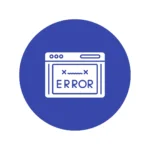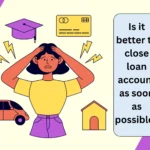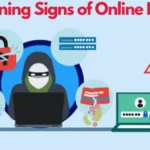Being a victim of online fraud is something no one would like to be. If you are, you must be having a very bad experience.
It could have been avoided, right? And you must be thinking by now how foolish you were.
How come you followed the fraudster’s instructions anyway?
These are some of the thoughts that keep us thinking about the episodes.
Online fraud related to bank accounts is quite common in today’s banking system. It could happen to anyone—me, you, or anyone else.
Its like a ticking time bomb. When your time’s up, it will just blow up. The good thing is that, we can always stay ahead of these cybercrime frauds with some simple account maintenance basics.
What Went Wrong?
Sometimes, when things go wrong, there’s no one to blame. You know exactly what went wrong.
When you are the victim of an online financial fraud, you know exactly what is happening around you.
One way or another, there are always signs that we sense, but we ignore them somehow.
Its like knowing that you are going to lose it, but still keep on playing the game. Our subconscious mind sends us signals, prompting us to think that this might not be right or that it could be something bad.
But still, we override the signals and keep confirming that everything is fine, either due to the greed that the fraudster offers or because you think that it might be helpful.
Let’s understand this with an example: let’s say you have received an email or SMS stating that you have won a handsome reward from a renown company such as Amazon or Myntra.
As the content of the mail is offering a damn good deal, you keep clicking on the malicious links that are embedded in it. Though you know its too good to be true, you fail to control your urge for easy money.
Thats how human brains work. Create an environment of greed, and greedy minds are susceptible to various unwanted things.
So, once you click on to those links, your personal data may get compromised. If the links have codes that can control your system, it can get even worse.
Signs, You Should Watch Out
When something like online fraud is going to happen, you will surely see or encounter some odd situations. That’s where you must back off.
Here are some of the most common signs that an online fraud victim usually notices:
1. Getting Unsolicited Calls
This is one of the contact points where the majority of online fraud occurs. When you start getting calls from unknown people asking for your sensitive information, it should be avoided.
They may sound genuine, but your financial service provider never asks for sensitive information over the phone. They would rather ask you to visit them for further clarification.
Likewise, messages that are loaded with malicious links are quite harmful. It can get into your phone if you click on it. The malware linked to it may compromise your personal data.
It sounds harmless, but your personal data, such as your ID card (if you have stored it in your gallery), can be used to open fictitious Benami bank accounts to commit various criminal offenses.
2. SMS loaded with embedded links
SMS messages embedded with malicious links and emails embedded with malicious links should be avoided at all costs. These links may be a hook to capture your private data.
They often come up with attractive offers that are too good to be true.
When you click on it, you will either be directed to a fake website where you will be asked to provide your personal data, such as your account number, phone number, ATM card number, CVV number, and so on.
Or it could lead you to a fake online banking site that looks exactly like the bank’s website.
3. Unknown Transaction Details in your Bank Statement
Sometimes reviewing your bank account statement is quite useful for tracking your finances.
Though there are alert systems such as SMS alert and email alerts that give you real time transaction status, certain times we missed out these alert due to our busy work schedule and all.
So giving a little time once a week to check your bank statement would enhance your due diligence.
And any sort of unknown transactions that you observe would be dealt with without losing the time frame.
4. Getting emails With Embedded Links
Not only through SMS, you might have seen emails that have links of unknown sources.
Those emails need to be watched out for, as most scams and frauds are initiated with these tactics.
There could be bugs or virus in it. These bugs could literally harm your terminals, resulting in data compromise.
Valuable details such as your personal finances, your gallery, and important documents could be at risk.
Click on those links only if you are 100 percent certain of the origin of the mail.
5. Offers that seem Too Good To Be True
Banks do offer their products in various platforms. It could be through simple SMS, WhatsApp, Facebook, Instagram, emails, LinkedIn or even Pinterest.
When you see advertisements from genuine sources, you might not see those “Too good to be true” sorts of ads.
If you receive those ads or notice any of them on social media, stay away from them.
These ads work as a hook; once you get in, there is a high chance that you might end up losing your hard earned money.
How to Tackle Cybercrime Fraud?
Normally, what happens is that in cybercrime related to bank account frauds, the main motive of the fraudster is to gain control of your bank account and siphon all the money to another bank account.
And secondly, the fraudster might contact you directly and try to convince you to believe in something that may result to sharing your personal details, such as card number, OTPs, PINs, etc.
They may also try to convince you to doing whatever they need to to gain control of your system. It may include the installation of unknown app that allows remote access. The app Anydesk was widely used to defraud people in India.
So, what we see here is that, in a nutshell, your bank account is the prime source. You have to prevent this from being controlled by an unknown person.

Best Practices to Avoid Fraudsters.
Actually, its quite simple to safeguard your financial data. The actual problem is that we have hardly any time to look into things that matter, including bank account management.
It is advisable that we take a few moment each day and see if everything is alright. If not possible, once a week may do the trick. All you need to do is summed up below:
Checking Your Bank Account Statement
This is important. Check your bank account statement once a while.
This would enable you to control your personal finance effectively.
Knowing the Status of your system’s Antivirus and Firewall
Basic firewall on your system is sufficient if you know what and what not to do while performing online banking transactions.
This includes, internet banking, mobile banking, UPI transactions, ATM transactions, etc.
Try to understand how these services work and avoid those things that your bank prohibits.
Understand how your Bank Account Works
Understand your bank account, it could be your savings bank account or your business current account.
Make some time and read everything your bank has provided you. It could be a pamphlet of your banking product.
Banks usually provide the Dos and Don’ts of maintaining a bank account.
Stick to it, and you are 100 percent safe and protected.
Avoid Using Online Banking in Public WIFI
This is crucial; use only the network on which you are sure that your data is not going to be compromised.
As such, banks highly recommend not to use public WiFi to transact online.
Stay Away from unknown Websites and Links
Going through unknown website and using your ATM card, credit card or net banking is not good at all.
If it turns out to be a fictitious website, you might end up losing money.
If possible, keep your bank-registered Mobile Number Separate
The mobile number that you have enrolled in your bank account should be always secured.
If you can, try to use it for banking purposes only, and if you set your mobile number as your UPI ID, you need to have it changed and set the UPI ID in your own term.
Moreover, for internet banking to be hacked, the first thing that is usually compromised is your mobile SIM.
Fraudsters would duplicate your SIM and they would initiate various online transactions. Once your SIM is cloned, your OTP is not safe at all.
Do not share your KYC without verification
Documents related to KYC compliance are very important. It’s basically your identification that may include your financial data along with other documents such as an ID card and PAN card.
One has to be very careful while giving out these documents. Especially while handing out copies of Aadhaar and PAN cards.
Though you might get masked aadhaar, most of the time people do not give much attention to these documents.
Yes, submitting these papers to the genuine organisation is okay, but there are certain cases when you have to provide your KYC details.
As such, providing your voter card or driver’s licence may be a better option.
Conclusion
To protect ourselves from online frauds and scams, we have to have a sound knowledge of some of the basics of banking, the uses of the internet of things, and the mechanisms by which all this online banking works.
Understanding the dos and don’ts of banking is one of the best ways to stay updated about your personal finances. The warning signs of online fraud can be easily identified if you put some common sense into them.
As we have mentioned earlier, we already know when something like ATM fraud or internet banking fraud is going to happen. All we need to do is follow our instinct. Listen to your inner voice that prompts you to think this might not be right.
When doubts are there, its better to back off, especially when it comes to money.








